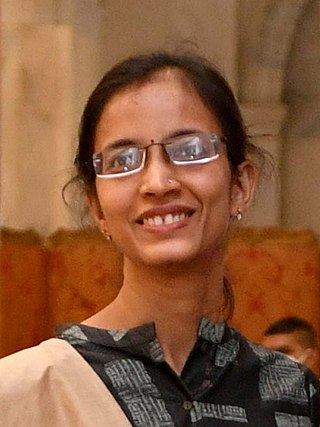External links
- International Association for Statistical Computing IASC home page
- Computational Statistics & Data Analysis Journal home page
The International Association for Statistical Computing [1] was founded during the 41st Session of the International Statistical Institute in 1977, as a section of the ISI. [2]
The objectives of the association are to foster worldwide interest in effective statistical computing and to exchange technical knowledge through international contacts and meetings between statisticians, computing professionals, organizations, institutions, governments and the general public.
The association is affiliated with the International Federation for Information Processing (IFIP). It publishes the journal called Computational Statistics & Data Analysis (CSDA) [3] and Statistical Software Newsletter (CSDA SSN). [4]
| Year | Result |
|---|---|
| 2013 [5] | Winner 1:
Winner 2:
|
| 2014 [6] | Winner:
|
| 2015 [7] | Winner:
|
| 2021 [8] [9] | 1st Place:
2nd Place:
3rd Place:
Honorable Mention:
|
| 2023 [11] [12] | 1st Place:
2nd Place:
3rd Place:
Honorable Mention:
|

Bioinformatics is an interdisciplinary field of science that develops methods and software tools for understanding biological data, especially when the data sets are large and complex. Bioinformatics uses biology, chemistry, physics, computer science, computer programming, information engineering, mathematics and statistics to analyze and interpret biological data. The subsequent process of analyzing and interpreting data is referred to as computational biology.

Computational sociology is a branch of sociology that uses computationally intensive methods to analyze and model social phenomena. Using computer simulations, artificial intelligence, complex statistical methods, and analytic approaches like social network analysis, computational sociology develops and tests theories of complex social processes through bottom-up modeling of social interactions.

Indian Statistical Institute (ISI) is a public university which is recognized as an Institute of National Importance by the 1959 act of the Indian parliament. It grew out of the Statistical Laboratory set up by Prasanta Chandra Mahalanobis in Presidency College, Kolkata. Established in 1931, this unique institution of India is one of the oldest institutions focused on statistics, and its early reputation led it to being adopted as a model for the first US institute of statistics set up at the Research Triangle, North Carolina by Gertrude Mary Cox.
The goodness of fit of a statistical model describes how well it fits a set of observations. Measures of goodness of fit typically summarize the discrepancy between observed values and the values expected under the model in question. Such measures can be used in statistical hypothesis testing, e.g. to test for normality of residuals, to test whether two samples are drawn from identical distributions, or whether outcome frequencies follow a specified distribution. In the analysis of variance, one of the components into which the variance is partitioned may be a lack-of-fit sum of squares.

Sankar Kumar Pal is a computer scientist and president of the Indian Statistical Institute, Kolkata. He is a computer scientist with an international reputation on pattern recognition, image processing, fuzzy neural network, soft computing, granular mining, and machine intelligence. He founded the Machine Intelligence Unit in 1993, and the Center for Soft Computing Research: A National Facility in 2004, both at the ISI. He is the founder president of the Indian National Academy of Engineering, Kolkata Chapter.
Neuroinformatics is the field that combines informatics and neuroscience. Neuroinformatics is related with neuroscience data and information processing by artificial neural networks. There are three main directions where neuroinformatics has to be applied:
Edward Wegman is an American statistician and was a professor of statistics at George Mason University until his retirement in 2018. He holds a Ph.D. in mathematical statistics and is a Fellow of the American Statistical Association, a Senior Member of the IEEE, and past chair of the National Research Council Committee on Applied and Theoretical Statistics. In addition to his work in the field of statistical computing, Wegman contributed a report to a Congressional hearing on climate change at the request of Republican Rep. Joe Barton. Wegman's report supported criticisms of the methodology of two specific paleoclimate studies into the temperature record of the past 1000 years, and argued that climate scientists were excessively isolated from the statistical mainstream. Subsequently, significant portions of Wegman's report were found to have been copied without attribution from a variety of sources, including Wikipedia, and a publication based on the report was retracted.

Computational Engineering is an emerging discipline that deals with the development and application of computational models for engineering, known as Computational Engineering Models or CEM. Computational engineering uses computers to solve engineering design problems important to a variety of industries. At this time, various different approaches are summarized under the term Computational Engineering, including using computational geometry and virtual design for engineering tasks, often coupled with a simulation-driven approach In Computational Engineering, algorithms solve mathematical and logical models that describe engineering challenges, sometimes coupled with some aspect of AI, specifically Reinforcement Learning.
Joseph Michael Hilbe was an American statistician and philosopher, founding President of the International Astrostatistics Association (IAA) and one of the most prolific authors of books on statistical modeling in the early twenty-first century. Hilbe was an elected Fellow of the American Statistical Association as well as an elected member of the International Statistical Institute (ISI), for which he founded the ISI astrostatistics committee in 2009. Hilbe was also a Fellow of the Royal Statistical Society and Full Member of the American Astronomical Society.
The International Statistical Institute (ISI) is a professional association of statisticians. It was founded in 1885, although there had been international statistical congresses since 1853. The institute has about 4,000 elected members from government, academia, and the private sector. The affiliated associations have membership open to any professional statistician.

Computational statistics, or statistical computing, is the bond between statistics and computer science, and refers to the statistical methods that are enabled by using computational methods. It is the area of computational science specific to the mathematical science of statistics. This area is also developing rapidly, leading to calls that a broader concept of computing should be taught as part of general statistical education.
John McKinley Chambers is the creator of the S programming language, and core member of the R programming language project. He was awarded the 1998 ACM Software System Award for developing S.
Computational Statistics & Data Analysis is a monthly peer-reviewed scientific journal covering research on and applications of computational statistics and data analysis. The journal was established in 1983 and is the official journal of the International Association for Statistical Computing, a section of the International Statistical Institute.
Xuming He is Professor and Inaugural Chair of Statistics and Data Science at the Washington University in St. Louis. He serves as President (2023-2025) of the International Statistical Institute.
Noel Andrew Cressie is an Australian and American statistician. He is Distinguished Professor and Director, Centre for Environmental Informatics, at the University of Wollongong in Wollongong, Australia.

Neena Gupta is a professor at the Statistics and Mathematics Unit of the Indian Statistical Institute (ISI), Kolkata. Her primary fields of interest are commutative algebra and affine algebraic geometry.

The first edition of the textbook Data Science and Predictive Analytics: Biomedical and Health Applications using R, authored by Ivo D. Dinov, was published in August 2018 by Springer. The second edition of the book was printed in 2023.
Byeong Uk Park is a South Korean statistician working in structured nonparametric regression, semiparametric inference and non-Euclidean data analysis. He is Professor of Statistics at the Seoul National University.
Thomas Lumley is an Australian statistician who serves as the chair of biostatistics at the University of Auckland in New Zealand. Lumley is also a member of the "R Core Team."
Guosheng Yin is a statistician, data scientist, educator and researcher in Biostatistics, Statistics, machine learning, and AI. Presently, Guosheng Yin is Chair in Statistics in Department of Mathematics at Imperial College London. Previously, he served as the Head of Department and the Patrick S C Poon Endowed Chair in Statistics and Actuarial Science, at the University of Hong Kong. Before he joined the University of Hong Kong, Yin worked at the University of Texas M.D. Anderson Cancer Center till 2009 as a tenured Associate Professor of Biostatistics.